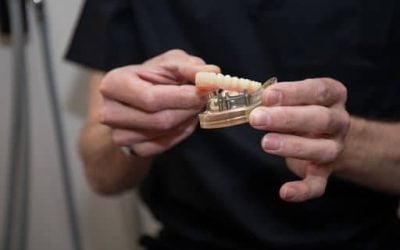If you are in need of instructional care before or after surgery, please see the following information. If you have any additional questions, we’re here to help! Our team is happy to answer any questions or address any concerns you may have.
Instructions Before Anesthesia
- Do not eat or drink anything (including water) for eight hours prior to your visit.
- Do not smoke for at least 12 hours before surgery. We recommend smoking as little as possible for 24 hours before surgery.
- An adult will be needed to bring you to your visit, stay in the office during your procedure and bring you home following your visit.
- You should not drive or operate any machinery for 24 hours following your visit.
- You will need to wear loose-fitting clothes and sleeves that are above the elbow or can be rolled up above your elbow. Also, please wear low-heeled shoes.
- All jewelry, dentures and contact lenses will need to be removed before surgery.
- Please do not wear lipstick, nail polish or a lot of makeup when arriving for surgery.
Post-Op Instructions for Oral Surgery
- Do not rinse or spit for 24 hours after surgery.
- Use ice packs on the surgical area (side of face) for the first 48 hours, apply ice 20 minutes on — 20 minutes off. Bags of frozen peas and corn work well.
- For mild discomfort take Tylenol or Ibuprofen every 3-4 hours. For severe pain use the medication prescribed to you. If the muscles of the jaw become stiff, chewing gum at intervals will help relax the muscles, as well as the use of warm, moist heat to the outside of your face over these muscles.
- After the first post-operative day, use a warm salt-water rinse following meals for the first week to flush out particles of food and debris which may lodge in the surgical area. (1/4 teaspoon of salt in a glass of warm water. Mouthwash can be added for better taste.)
- Drink plenty of fluids. (Do not use a straw.) Diet may consist of soft foods which can be easily chewed and swallowed. No seeds, nuts, rice, popcorn, etc.
- A certain amount of bleeding is to be expected following surgery. Bleeding is controlled by applying pressure to the surgical area using small rolled gauze for 90 minutes. After that time remove the gauze and then you may eat or drink. If bleeding persists, a moist tea bag should be placed in the area of bleeding and bite firmly for one hour straight. This will aid in clotting blood. Repeat if necessary. If bleeding still persists, call our office.
- We suggest that you do not smoke for at least 5 days after surgery. Nicotine may break down the blood clot and cause a “dry-socket”.
After Placement of Dental Implants
- Avoid rinsing, spitting, or touching the wound on the day of surgery. There will be a metal healing abutment protruding through the gingival (gum) tissue.
- Some bleeding or redness in the saliva is normal for 24 hours. Excessive bleeding can be controlled by biting on a gauze pad placed directly on the bleeding wound for 30 minutes. If bleeding continues please call for further instructions.
- Swelling is a normal occurrence after surgery. To minimize swelling, apply an ice bag, or a plastic bag, or towel filled with ice on the cheek in the area of surgery. Apply the ice continuously, as much as possible, for the first 36 hours.
- Drink plenty of fluids. Avoid hot liquids or food. Soft food and liquids should be eaten on the day of surgery.
- You should begin taking pain medication as soon as you feel the local anesthetic wearing off. Be sure to take the prescribed antibiotics as directed to help prevent infection.
- Good oral hygiene is essential to good healing. Use the Peridex Oral Rinse as prescribed. Brushing your teeth and the healing abutments is no problem. Be gentle initially with brushing the surgical areas.
- Keep physical activities to a minimum immediately following surgery.
- Partial dentures, flippers, or full dentures should not be used immediately after surgery and for at least 10 days. This will have been discussed in the pre-operative consultation
After Wisdom Tooth Removal
- Vigorous mouth rinsing or touching the wound area following surgery should be avoided. This may initiate bleeding by causing the blood clot that has formed to become dislodged.
- Take the prescribed pain medications as soon as you begin to feel discomfort. This will usually coincide with the local anesthetic becoming diminished.
- Restrict your activities the day of surgery and resume normal activity when you feel comfortable.
- Place ice packs to the sides of your face where surgery was performed. Refer to the section on swelling for explanation.
- A certain amount of bleeding is to be expected following surgery. Slight bleeding, oozing, or redness in the saliva is not uncommon. Excessive bleeding may be controlled by first rinsing or wiping any old clots from your mouth, then placing a gauze pad over the area and biting firmly for thirty minutes. Repeat if necessary. If bleeding continues, bite on a moistened tea bag for thirty minutes. The tannic acid in the tea bag helps to form a clot by contracting bleeding vessels. To minimize further bleeding, do not become excited, sit upright, and avoid exercise. If bleeding does not subside, call for further instructions.
- The swelling that is normally expected is usually proportional to the surgery involved. Swelling around the mouth, cheeks, eyes and sides of the face is not uncommon. The swelling will not become apparent until the day following surgery and will not reach its maximum until 2-3 days post-operatively. However, the swelling may be minimized by the immediate use of ice packs. If swelling or jaw stiffness has persisted for several days, there is no cause for alarm. This is a normal reaction to surgery. Thirty-six hours following surgery, the application of moist heat to the sides of the face is beneficial in reducing the size of the swelling.
After Exposure of an Impacted Tooth
- Do not disturb the wound. If surgical packing was placed, leave it alone. The pack helps to keep the tooth exposed. If it gets dislodged or falls out do not get alarmed.
- Some bleeding or redness in the saliva is normal for 24 hours. Excessive bleeding which results in your mouth filling rapidly with blood can frequently be controlled by biting with pressure on a gauze pad placed directly on the bleeding wound for 30 minutes. If bleeding continues please call for further instructions.
- Swelling is a normal occurrence after surgery. To minimize swelling, apply an ice bag or a plastic bag or towel filled with ice cubes on the cheek in the area of surgery. Apply the ice continuously as much as possible for the first 36 hours.
- Drink plenty of fluids. Avoid hot liquids or food. Soft food and liquids should be eaten on the day of surgery. Return to a normal diet as soon as possible unless otherwise directed.
- You should begin taking pain medication as soon as you feel the local anesthetic wearing off. For moderate pain, 1 or 2 Tylenol or Extra Strength. Tylenol may be taken every 3-4 hours. Ibuprofen (Advil, Motrin) may be taken instead of Tylenol.
- Mouth cleanliness is essential to good healing. Clean your mouth thoroughly after each meal beginning the day after surgery. Brush your teeth as best you can. Rinse with warm salt water (1/2 teaspoon of salt in a cup of warm water) six times a day. Continue this procedure until healing is complete.
- Keep physical activities to a minimum immediately following surgery. If you are considering exercise, throbbing or bleeding may occur. If this occurs, you should discontinue exercising. If you get light headed, stop exercising.
After Tooth Extraction
- Bite on a gauze pad for 30-45 minutes after the appointment. If the bleeding or oozing still persists, place another gauze pad and bite firmly for another 30 minutes. You may have to do this several times.
- After the blood clot forms, it is important not to disturb or dislodge the clot as it aids healing. Do not rinse vigorously, suck on straws, smoke, drink alcohol or brush teeth next to the extraction site for 72 hours.
- Limit vigorous exercise for the next 24 hours as this will increase blood pressure and may cause more bleeding from the extraction site.
- After the tooth is extracted you may feel some pain and experience some swelling. An ice pack or an unopened bag of frozen peas or corn applied to the area will keep swelling to a minimum. Take pain medications as prescribed. The swelling usually subsides after 48 hours. Use the pain medication as directed. Call the office if the medication doesn’t seem to be working. If antibiotics are prescribed, continue to take them for the indicated length of time, even if signs and symptoms of infection are gone.
- Drink lots of fluid and eat nutritious soft food on the day of the extraction. You can eat normally as soon as you are comfortable.
- It is important to resume your normal dental routine after 24 hours. This should include brushing and flossing your teeth at least once a day. This will speed healing and help keep your mouth fresh and clean.
- After a few days you will feel fine and can resume your normal activities. If you have heavy bleeding, severe pain, continued swelling for 2-3 days, or a reaction to the medication, call our office immediately.
After the Removal of Multiple Teeth
- A small amount of bleeding is to be expected following the operation. If bleeding occurs, place a gauze pad directly over the bleeding socket and apply biting pressure for 30 minutes. If bleeding continues, a moist tea bag can be used for 30 minutes. If bleeding occurs, avoid hot liquids, exercise, and elevate the head. If bleeding persists, call our office immediately. Do not remove immediate denture unless the bleeding is severe. Expect some oozing around the side of the denture.
- Use ice packs (externally) on the same side of the face as the operated area. Apply ice for the first 36 hours only. Apply ice continuously while you are awake.
- For mild discomfort use aspirin, Tylenol or any similar medication; two tablets every 3-4 hours. Ibuprofen (Advil, Motrin) 200mg can be taken 2-3 tablets every 3-4 hours. For severe pain use the prescription given to you. If the pain does not begin to subside in 2 days, or increases after 2 days, please call our office. If an antibiotic has been prescribed, finish your prescription regardless of your symptoms.
- Drink plenty of fluids. If many teeth have been extracted, the blood lost at this time needs to be replaced. Drink at least six glasses of liquid the first day.
- Do not rinse your mouth for the first post-operative day, or while there is bleeding. After the first day, use a warm salt water rinse every 4 hours and following meals to flush out particles of food and debris that may lodge in the operated area. (One half teaspoon of salt in a glass of lukewarm water.). After you have seen your dentist for denture adjustment, take out denture and rinse 3 to 4 times a day.
- Restrict your diet to liquids and soft foods, which are comfortable for you to eat. As the wounds heal, you will be able to advance your diet.
The removal of many teeth at one time is quite different from the extraction of one or two teeth. Because the bone must be shaped and smoothed prior to the insertion of a denture, the following conditions may occur, all of which are considered normal:
- The area operated on will swell reaching a maximum in two days. Swelling and discoloration around the eye may occur. The application of a moist warm towel will help eliminate the discoloration quicker. The towel should be applied continuously for as long as tolerable beginning 36 hours after surgery (remember ice packs are used for the first 36 hours only).
- A sore throat may develop. The muscles of the throat are near the extraction sites. Swelling into the throat muscles can cause pain. This is normal and should subside in 2-3 days.
- If the corners of the mouth are stretched, they may dry out and crack. Your lips should be kept moist with an ointment like Vaseline. There may be a slight elevation of temperature for 24-48 hours. If temperature continues, notify our office.
- If immediate dentures have been inserted, sore spots may develop. In most cases, your dentist will see you within 24-48 hours after surgery and make the necessary adjustments to relieve those sore spots. Failure to do so may result in severe denture sores, which may prolong the healing process.
Sinus Precaution Before Surgery
Because of the close relationship between upper back teeth and the sinus, a communication between the sinus and mouth sometimes results from surgery. Certain precautions will assist healing and we ask that you faithfully follow these instructions:
- Take prescriptions as directed.
- Do not forcefully spit for several days.
- Do not smoke for several days.
- Do not use a straw for several days.
- Do not forcefully blow your nose for at least two weeks, even though your sinus may feel “stuffy” or there may be some nasal drainage.
- Try not to sneeze; it will cause undesired sinus pressure. If you must sneeze, keep your mouth open.
- Eat only soft foods for several days, always trying to chew on the opposite side of your mouth.
- Do not rinse vigorously for several days. Gentle salt water swishes may be used.
- Slight bleeding from the nose is not uncommon for several days after surgery.
Please keep our office advised of any changes in your condition, especially if drainage or pain increases. It is important that you keep all future appointments until this complication has resolved.


